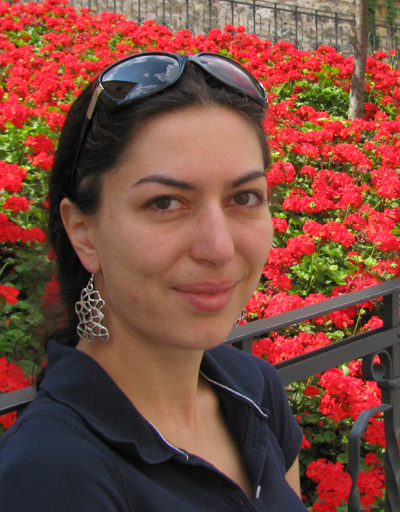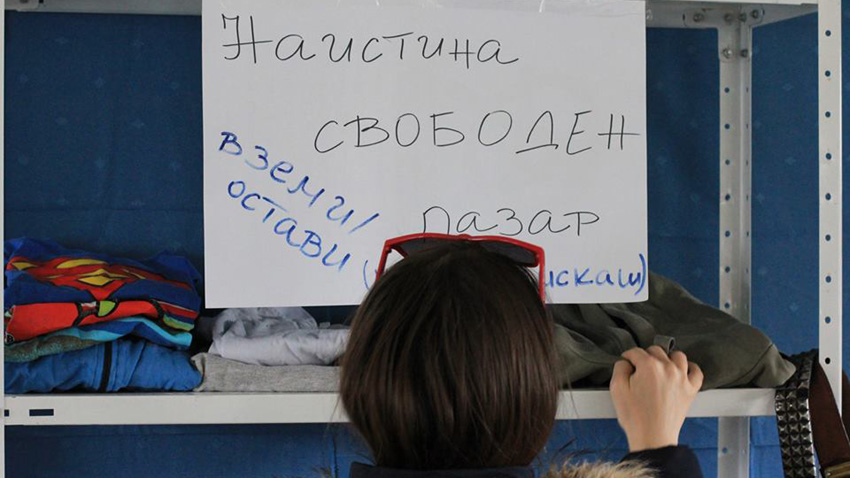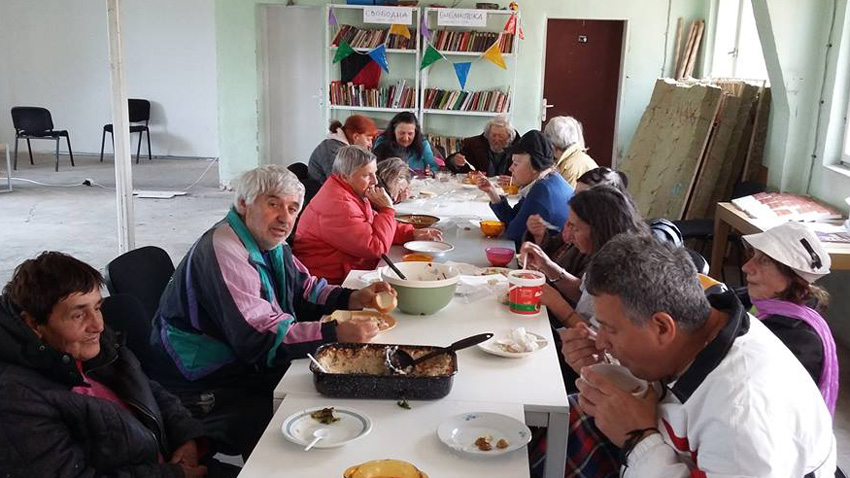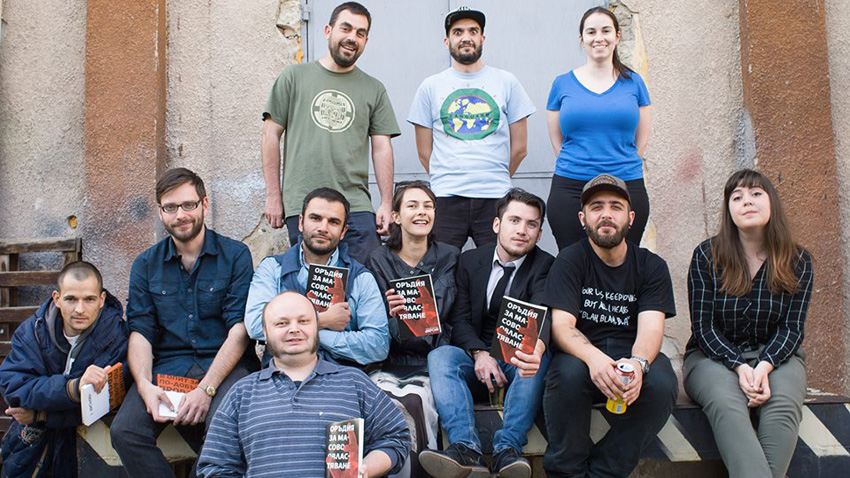In times when the political and business elite tries to convince us that our choice boils down to what we buy in the shops, who we work for and who to vote for, the newly-established Factory Autonomy Social Center gives breath to all who want to get acquainted with alternative practices and models of economic development. “We do not want to believe that freedom belongs only to the large corporations and restrictions are imposed on the people only”, the web site of the social center informs. Politics is not a privilege of a handful of authorized people. It is a commitment of each one of us. Valentina Georgieva who teaches culturology at St. Kliment Ohridski University in Sofia and works as a volunteer at the social center told Radio Bulgaria details about the purposes and the activities of the center.
 “The Social Center is situated in an old textile factory nearby the Lion’s Bridge downtown Sofia. The factory was built in the beginning of the 20th century. Our center was named Factory Autonomy, in order to meet two main principles. Firstly, it is a self-organized space which is managed and organized by a small group of 10 to 15 people. That group creates its own legislation and is independent from all types of foreign financing. We are not linked with any non-governmental organizations, political parties or municipalities. We are trying to create our own model of self-support. We collect donations at the end of each month form out members. Thus, we manage to pay our rent.”
“The Social Center is situated in an old textile factory nearby the Lion’s Bridge downtown Sofia. The factory was built in the beginning of the 20th century. Our center was named Factory Autonomy, in order to meet two main principles. Firstly, it is a self-organized space which is managed and organized by a small group of 10 to 15 people. That group creates its own legislation and is independent from all types of foreign financing. We are not linked with any non-governmental organizations, political parties or municipalities. We are trying to create our own model of self-support. We collect donations at the end of each month form out members. Thus, we manage to pay our rent.”
The Factory for Independence has been trying to develop one of the types of the shared economy - the independent co-operative society. This is a community for direct exchange of goods and services between manufacturers and consumers.
 “The purpose of our programme is to prove that there are other forms of exchange apart from those that are regulated by the market and the money. We can give one another what we need free of charge. We already gave the start of the free software course and the Bulgarian language course for refugees and foreign nationals. The courses in Spanish and French have already begun as well. Soon, we are to launch the English language course. This knowledge can be shared among people. We do everything on a voluntary principle", Valentina went on to say.
“The purpose of our programme is to prove that there are other forms of exchange apart from those that are regulated by the market and the money. We can give one another what we need free of charge. We already gave the start of the free software course and the Bulgarian language course for refugees and foreign nationals. The courses in Spanish and French have already begun as well. Soon, we are to launch the English language course. This knowledge can be shared among people. We do everything on a voluntary principle", Valentina went on to say.
Every week the center shows socially-orientated movies and documentaries which are always followed by various discussions. The
entrance to those films is free of charge. The movies present different types of social movements in Bulgaria and abroad.
What needs does the social center meet?
“It meets the needs related to the lack of space. This is not a standard network or organization. It is rather a place where activists, groups and movements who share the same view about different things meet. Some movements are weak, because they often stay isolated. When different groups have the opportunity to communicate, share common values and make debates they are able to build a strong a solidary social movement. We have already started to work with the Animal Rights Movement, the Autonomous Worker’s Syndicate, dVERSIA online group, etc.”

Is that social center visible enough in the public space?
“Our biggest problem is linked with stability. During the 2013 protests some groups became active on certain occasions, but none of them managed to firm their position over the years. We believe that this is due to the lack of venues and joint activities that unite us. Theory and practice meet at the Social Center. Each week Petar Piperkov teaches the so-called critical courses in economics which present traditions and models in economic thinking that are an alternative to the dominant Neoliberal economic model”.

English version: Kostadin Atanasov
Photos: fabrika-avtonomia.orgThe traditional Bulgarian Christmas picnic, organized by the Bulgarian Cultural and Social Association "Rodina - Sydney" and the Bulgarian School "Dr. Petar Beron", will take place on December 8 , 2024 in St. Leonards Park in Sydney. "We have..
The Bulgarian national minority in Albania is one of the largest in the country, according to data from the latest official population census. A total of 7,057 individuals identified as Bulgarians. For comparison, 23,000 people identified as Greeks,..
From today, residents of Stara Zagora, young and old, can send their letter to Santa Claus. A letterbox has been set up in the foyer of the city's State Puppet Theatre to collect messages for Father Christmas. The cultural institution guarantees that..
According to the Annual Report on the Health Status of Bulgarian Citizens for 2023, t he main cause of death in Bulgaria is diseases of the..
At the Bulgarian Embassy in London, Prof. Bettany Hughes presented excerpts from the new BBC series - Wonders of Bulgaria. Prof. Bettany..
Over 3.5 million Ukrainians have arrived in or passed through Bulgaria since the beginning of the war. Nearly 200,000 people have found temporary..

+359 2 9336 661
